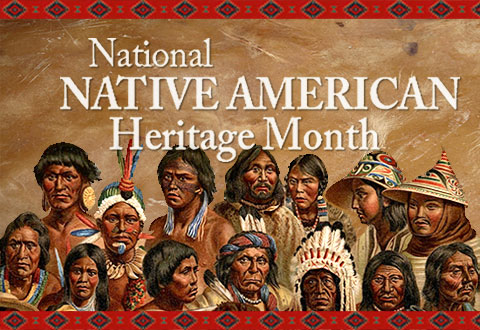Recognizing Native Americans with Native American Heritage Month in November
November 21, 2022
From the misrepresentation of their community to the thousands of wrongdoings they faced, The Native American, American Indian, and Alaska Natives now have a month in their honor, Native American Heritage month. Native American communities were given the month of November to remember their heritage.
It is a time to celebrate the rich and diverse cultures, traditions, and histories to acknowledge the contributions of the Native American people. With the addition of November becoming Native American Heritage month, art teacher Joshua Wolf adds, “I really love it! I enjoy the focus on a relevant part of our current America, as opposed to an antiquated idea that idolizes colonialism.”
Native American heritage had become a month in 1990, where a joint resolution was passed by Congress and signed into law by late President George H. W. Bush, declaring that November will be Native American Indian Heritage Month (Blakemore). With this new acknowledgment for others to learn more about Native American communities, there are still some questions about Columbus Day, and what exactly happened to it.
In the past President Franklin Delano Roosevelt declared Columbus Day as a national holiday in 1934, where it was then celebrated as a federal holiday (Blakemore). But recently the national holiday was in the spotlight as a celebration of a man whose arrival in the Americas heralded the large oppression of another group of people: The Native Americans.
Joshua Wolf adds, “I am in agreeance with it, as Columbus day makes a hero out of a horrible act of genocide.” Now, in many states and cities, Columbus Day has been replaced as Indigenous People’s day, to give those Native American communities the representation they deserve and need.
But of course, there are still questions and debates about the truth of the Thanksgiving holiday and its meaning to the Native Americans. History Professor David Silverman at George Washington University has studied and interviewed the Wampanoags tribe to better understand their perspective of the Thanksgiving tradition. Silverman shares, “When the pilgrims landed at Plymouth in 1620, the sachem (chief) Ousamequin offered the new arrivals an entente, primarily as a way to protect the Wampanoags against their rivals, the Narragansetts. For 50 years, the alliance was tested by colonial land expansion, the spread of disease, and the exploitation of resources on Wampanoag land. Then, tensions ignited into war. Known as King Philip’s War, the conflict devastated the Wampanoags and forever shifted the balance of power in favor of European arrivals. Wampanoags today remember the Pilgrims’ entry to their homeland as a day of deep mourning, rather than a moment of giving thanks” (Bugos).
In schools across the country Thanksgiving is taught as a celebratory feast between Pilgrims and Native Americans. Mr. Wolf adds, “I feel like Thanksgiving was created through white supremacy, and the othering of native people. By continuing to lift up the institution of Thanksgiving, we are continuing in the history of the original white settlers who were colonizers. I do believe finding a different history to celebrate during this time is best! We should continue to practice giving thanks and spending time with our loved ones, but change the context.”
Source:
Blakemore, Erin. “Columbus Day or Indigenous People’s Day? How the Holiday has been Shaped by Oppression.” National Geographic. 2022. Web Accessed 21 November 2022.
Bugos, Claire. “The Myths of the Thanksgiving Story and the Lasting Damage they Imbue.” Smithsonian Magazine. 26 November 2019. Web Accessed 21 Novemeber 2022.
